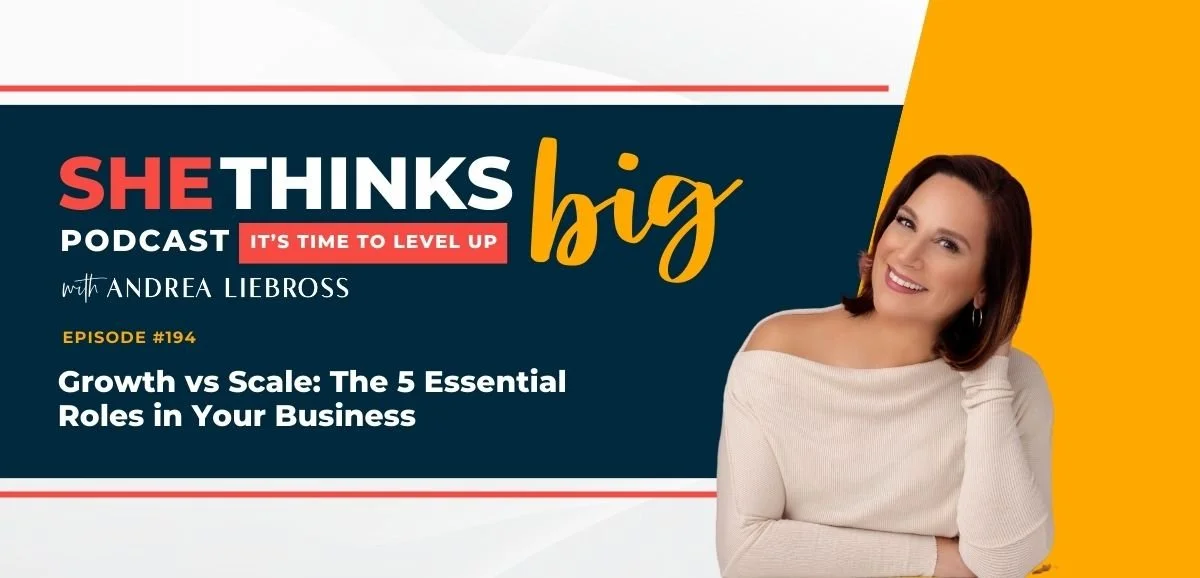194: Growth vs Scale: The 5 Essential Roles in Your Business
How do you think about the people working in your business? More specifically, what is your thinking process concerning the roles they play?
As an entrepreneur, you need to account for five valuable roles that you and other people hold inside your company. These roles represent different aspects of work, strategic input, and judgment in your business
You don’t have to have all of them in place right off the bat. However, you’ll need to fill these roles as you grow and scale, if you want to do so successfully.
In this episode of She Thinks Big, you’ll learn about the five roles people can play inside your business and how each one’s characteristics and focus differ from the others. I’ll also discuss how they work in synergy as your business levels up.
What’s Covered in This Episode on Essential Roles in Your Business
1:51 - The need for different aspects of your business to be accounted for as you grow or scale
3:56 - Description, characteristics, and focus of the five roles that exist inside businesses and organizations
9:16 - How doers and implementers differ from managers, how leaders differ from visionaries, and how they all interact within your business as a whole
Mentioned In Growth vs Scale: The 5 Essential Roles in Your Business
She Thinks Big by Andrea Liebross
Andrea on LinkedIn, Instagram, and Facebook
Quotes from the Episode
“As you grow, you need to have other leaders. You need to have people who take responsibility.” - Andrea Liebross
“If you’re starting to scale, you’ve got a doer, an implementer or manager, and you are the visionary.” - Andrea Liebross
“Understanding and cultivating these roles can really enhance your business’s capacity to thrive, adapt, and scale.” - Andrea Liebross
“As you lay that foundation for scaling, you’ve got to assess who’s your next hire. What role are they going to fill?” - Andrea Liebross
Links to other episodes
185: Five Stages of Business and the Decisions to Make as You Grow
162: Stop Punishing Future You For the Choices You Made in the Past
110: How Shifting Into Future Focus Aligns Your For Success
[fusebox_transcript]

